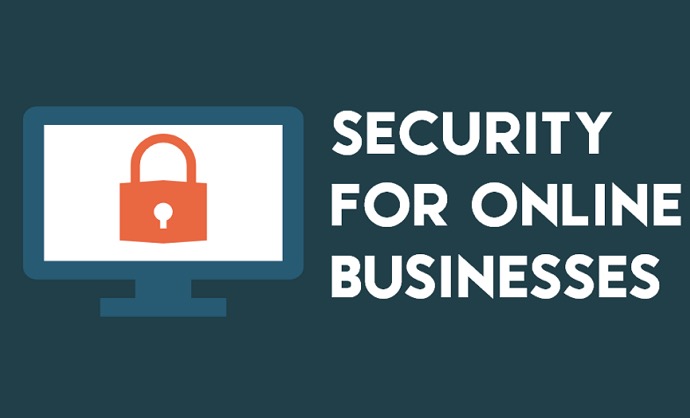Online business security is an aspect every serious online entrepreneur is keen on. There is a misconception that clouds this industry, that small businesses are the least prone to brute attacks. This is a lie, according to Verizon’s most recent report dubbed Data Breach Investigation Report, it painted the grim picture on this situation. 43% of all data breaches reported were targeting small and medium businesses. This is close to half of all hacks that were carried out that particular year of the survey; it is a sad and worrying trend that needs to be extinct.
Another worrying statistic is that 83% of all the small and medium businesses that suffer a data breach do not recover. This is according to Insurance Bee’s Cyber Survey. They lack the funds to deal with the repercussions of the attack and they just bow out. This is the harsh reality of things out in the world
This post will discuss some online business security tips that are potential lifesavers. Read through:
1. Change your passwords
Passwords determine how strong your security protocol is. They can be your stronghold or your weak spot in site security because they are your first line of defense. There are some strategies you can put in place to ensure your first line of defense is reliable.
First off, you need to set your passwords to alphanumeric. Do not curate your password from a single character type; this will make the password feeble and susceptible to attacks by hackers and other harmful third parties.
Secondly, you need to change your password every three months. This may seem like a small measure, far from that. It will ensure that anyone monitoring your passwords will not get enough time to master it.
Lastly, do not come up with an obvious password. Get as random and unpredictable as possible so that it is harder for any third party to guess.
2. Encrypt all the devices you use often
Device encryption is as essential as online encryption. This shifts the attention to your physical security, imagine getting your laptop stolen and simply because it has a password that does not mean all your critical information is safe. They will simply transfer your hard disk to another device, and your information will be out in the open.
This can easily be averted by encrypting all your storage devices; you can do this on your PC by using BitLocker. It is very safe to use. Lastly, do not save your passwords on the browser you are using. They can also be compromised.
3. Use a Virtual Private Network (VPN)
Public Wi-Fi is a major threat to online security. Hackers use this open network to gain access to devices that connect to it, and they make hay while the sun shines. They loot all they can and leave you to pick up the pieces. Why risk it?
Virtual private networks enable you to connect to a safe and secure internet connection. When you are working away from your usual workplace, and you are not sure whether the internet is safe, then VPNs are a safe alternative. They are apps you install on your phone or laptop, and when activated, they encrypt your connection.
4. Use SSL certificates
Secure socket layer is the backbone of website security. If you use these SSL certificates, preferably the EV SSL Certificate to encrypt your webpages, then you are assured that your site is bulletproof. Hackers will try to breach your website from every possible angle, and SSL will protect your data from all these attempts.
They move the website from the less secure HTTP to the much more secure HTTPS protocol. This secure protocol assures your clients their information is safe, and thus you will draw more traffic.
Use the EV SSL Certificates to secure your domain, and you will reap all the benefits that come with SSL.
5. Get yourself a private business mailbox
It is important to separate work from leisure; you should erect a wall between the two. Getting yourself a private mailbox address service will go a long way in achieving that aspect of privacy. This is important because this private mailbox is not just available to anyone who stumbles across your website on the internet.
You also reduce the risk of getting spam emails that may contain malware. This malware will infect your site and even possibly crush it. It is prudent to prevent this type of attacks before they happen.
6. Get a private business phone number
If you are just starting and you work from home, then you may require only one phone number. But as your business grows, you will see the need to have more than one number for your business. You will provide these numbers to the public on multiple occasions, and it is important to separate work from your personal life.
A private business number also gives your business a touch of professionalism. This will give you a business security, thus giving you that bulletproof aspect.
7. Back up all your data
Backing up all files is an effective business security measure. It is a good measure that enables you to recover all your documents in the unfortunate event of a data breach. It is a recovery measure.
You should back them up to both online storage clouds and even to offline storage spaces. This will ensure you are covered from across the board. Lastly, make sure you cover the computer files, website files and do not forget the bookmarks.
Wrapping up
Online business security is very vital towards the success of any ecommerce store. Even websites need to be secured from data breaches. As seen above, it is essential to separate your personal life from your business life. Get a private business number and a private email address. Also, backing up your data will ensure you have somewhere to start if you suffer an attack.



0 Comments